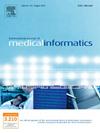Supporting the care to breast cancer patients with unique needs: Evidence from online community members’ responses
IF 3.7
2区 医学
Q2 COMPUTER SCIENCE, INFORMATION SYSTEMS
International Journal of Medical Informatics
Pub Date : 2024-11-06
DOI:10.1016/j.ijmedinf.2024.105695
引用次数: 0
Abstract
Background
Breast cancer is the most common cancer diagnosed in women globally. Online cancer communities (OCCs) provide platforms for breast cancer patients to connect, share experiences, and support each other. These communities facilitate discussions on a range of health- and non-health-related topics. However, posts discussing unique topics may receive varying levels of attention and support. This study aims to devise a method for identifying and supporting such posts, enhancing community response and support strategies.
Methods
We propose a Uniqueness Score Extraction Framework to compute health- and non-health-related uniqueness scores for online community posts. The framework utilizes deep learning-based natural language processing models to identify the topics discussed in OCCs and calculates the health- and non-health-related uniqueness scores of a post based on the uniqueness of the topics identified by the BERTopic model. We further employ econometric models to assess how the uniqueness scores of posts affect community members’ responses to those posts.
Results
Our study reveals that posts with a higher concentration of unique health-related topics in OCCs elicit quicker, more frequent, but shorter responses. Conversely, posts containing more unique non-health-related topics in the entire post prompt faster and longer responses, unless these topics become overly dominant, in which case the number of replies decreases, and response times are prolonged.
Conclusion
Our research develops a framework to identify posts with high uniqueness scores in OCCs, and sheds light on community member responses to these discussions. The findings indicate that while members are supportive, particularly regarding health-related topics, the post-content’s nature and focus greatly affect their engagement. These discoveries could enhance our understanding of community dynamics in OCCs, offering valuable implications for researchers, OCC facilitators, and medical professionals in supporting patients within online platforms.
为有特殊需求的乳腺癌患者提供护理支持:来自在线社区成员回复的证据。
背景:乳腺癌是全球妇女最常见的癌症。在线癌症社区(OCC)为乳腺癌患者提供了相互联系、分享经验和相互支持的平台。这些社区促进了一系列健康和非健康相关话题的讨论。然而,讨论独特话题的帖子可能会受到不同程度的关注和支持。本研究旨在设计一种识别和支持此类帖子的方法,以加强社区响应和支持策略:我们提出了一个独特性分数提取框架,用于计算在线社区帖子中与健康和非健康相关的独特性分数。该框架利用基于深度学习的自然语言处理模型来识别在线社区帖子中讨论的话题,并根据 BERTopic 模型所识别话题的独特性来计算帖子的健康和非健康相关独特性得分。我们进一步采用计量经济学模型来评估帖子的独特性得分如何影响社区成员对这些帖子的反应:我们的研究表明,OCC 中与健康相关的独特主题越集中的帖子,引起的回复越快、越频繁,但回复时间越短。相反,整篇帖子中包含更多与健康无关的独特话题的帖子会引起更快、更长时间的回复,除非这些话题变得过于重要,在这种情况下,回复数量会减少,回复时间也会延长:我们的研究建立了一个框架,用于识别 OCC 中独特性得分较高的帖子,并揭示了社区成员对这些讨论的反应。研究结果表明,虽然成员们都很支持讨论,尤其是与健康相关的话题,但帖子内容的性质和重点在很大程度上影响了他们的参与度。这些发现可以加深我们对 OCC 中社区动态的了解,为研究人员、OCC 促进者和医疗专业人员在网络平台上为患者提供支持提供有价值的启示。
本文章由计算机程序翻译,如有差异,请以英文原文为准。
求助全文
约1分钟内获得全文
求助全文
来源期刊

International Journal of Medical Informatics
医学-计算机:信息系统
CiteScore
8.90
自引率
4.10%
发文量
217
审稿时长
42 days
期刊介绍:
International Journal of Medical Informatics provides an international medium for dissemination of original results and interpretative reviews concerning the field of medical informatics. The Journal emphasizes the evaluation of systems in healthcare settings.
The scope of journal covers:
Information systems, including national or international registration systems, hospital information systems, departmental and/or physician''s office systems, document handling systems, electronic medical record systems, standardization, systems integration etc.;
Computer-aided medical decision support systems using heuristic, algorithmic and/or statistical methods as exemplified in decision theory, protocol development, artificial intelligence, etc.
Educational computer based programs pertaining to medical informatics or medicine in general;
Organizational, economic, social, clinical impact, ethical and cost-benefit aspects of IT applications in health care.
 求助内容:
求助内容: 应助结果提醒方式:
应助结果提醒方式:


